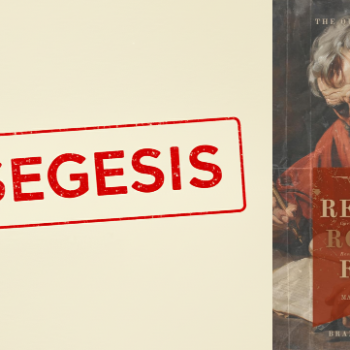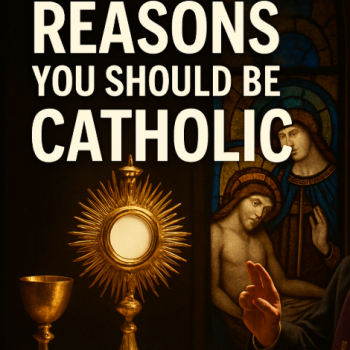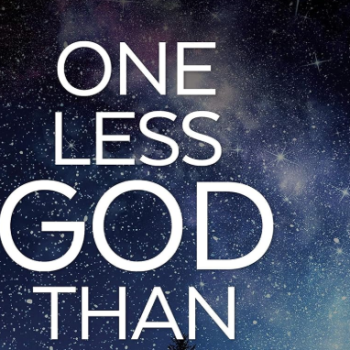 What if I told you that I consider liberal Protestants, especially Unitarian Universalist, the most authentic expression of Protestantism? Furthermore, they are not only the most authentic, but the logical end to the Reformation that can still claim a faith tradition. The other offspring: Modernism, Post-modernism, scientism, rationalism, and materialism are the Reformation’s rebellious offspring that reject their parent’s faith.
What if I told you that I consider liberal Protestants, especially Unitarian Universalist, the most authentic expression of Protestantism? Furthermore, they are not only the most authentic, but the logical end to the Reformation that can still claim a faith tradition. The other offspring: Modernism, Post-modernism, scientism, rationalism, and materialism are the Reformation’s rebellious offspring that reject their parent’s faith.
This is not a condemnation or judgment on Protestants themselves. Above all, it is an observation from a former Protestant on the nature of religious authority and authenticity. Please, allow me to explain myself.
A Captive Conscience
At the Diet of Worms in 1521, Martin Luther declared boldly:
“Unless I am convicted by Scripture and plain reason—I do not accept the authority of popes and councils, for they have contradicted each other—my conscience is captive to the Word of God.” [bolded emphasis mine]
In this declaration, Luther does two things. First, he enthrones himself as the final authority over popes and councils (the Church). Second, he elevated his theological opinions (Scriptural interpretations) to that of Christian orthodoxy (right belief). He does this by placing himself (his reason and his interpretation) as the final judge of right Christian belief. His “conscience is captive” to what he thinks the bible teaches, therefore what he thinks the bible teaches is what is “biblical.”
Advent of Universal Theological Opinion
Individual authority over the Church in matters of faith and practice opened the floodgates of theological opinion. To provide their various opinions with weight or gravitas, the Reformers claimed their views were “biblical” and therefore valid. Their views were “biblical” and theur opponent’s views “unbiblical.” Therefore, their opinions achieved irrefutability. What Christian would go against what the “bible” clearly teaches and remain a faithful Christian? They declared Scripture, and Scripture alone (sola scriptura), as the final authority on all matters of faith and practice. Similarly, this same Scripture required individual interpretation. This was a brilliant move on the part of the Reformers. In “Scripture alone” the authoritative coup d’etat was complete. In other words, they had their authoritative cake and could eat it too.
An Authentic Individual
Moreover, this brings us back to the Unitarian Universalists. Luther and Reformers like John Calvin espoused their opinions as “biblical” and therefore authoritative. Whereas, Unitarian Universalist are authentic in their embrace of the authority of their own opinions. Unitarian Universalist accept the authority of reason and conscience, and that only subjectively. They embrace multiple sources of “authoritative texts” from both religious and secular sources. Unitarian Universalist leave it to the individual to determine their own faith journey, even no faith journey at all.
For instance, according to their website, Unitarian Universalists provide a place where “you can bring your whole self: your full identity, your questioning mind, your expansive heart. By creating meaningful communities that draw from many wisdom traditions, and more, we are embodying a vision “beyond belief:” a vision of peace, love, and understanding.” They hold to Seven Principles and Six Sources. The 4th and 5th Principles concern reason and conscience.
4th Principle:
“A free and responsible search for truth and meaning;”
5th Principle:
“The right of conscience and the use of the democratic process within our congregations and in society at large;”
The Final Authority of Conscience
It is the individual and their individual journeys at the center of Unitarian Universalism. The tools used are reason, conscience, and “sacred texts.” Unitarian Universalism is the culmination of Luther’s Worms declaration on conscience. They hold no pretense and presumption of authoritative opinion based in “biblical” truth. They are authentic in their reliance on their own opinions and the source of those opinions—themselves. Therefore, the individual is the authority. They accept no pope or council. Their conscience is held captive to themselves. This is Protestantism’s most authentic end.
In conclusion, I do not think those who hold to sola scriptura think they are dishonest or in denial regarding their own opinions. They are a product of their faith tradition’s blind spot regarding what constitutes theological opinion and authoritative orthodoxy. These faith traditions affirm Luther’s view of Scriptural authority and therefore think their opinion “biblical.” They think themselves orthodox. The authenticity I refer to concerns opinion, not morality. I hope to call all who espouse sola scriptura to be more authentic and admit their “biblical” opinions are only that—opinions, non-authoritative, non-binding opinions.
Like what you read? Please check out my other writing here.
Please like and follow me on Facebook.












